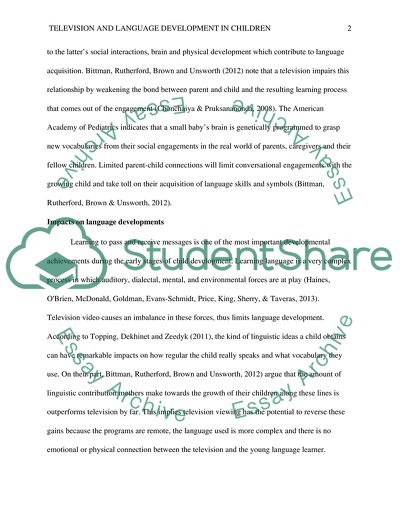Cite this document
(“Impacts of television on Language Development in Children Essay”, n.d.)
Impacts of television on Language Development in Children Essay. Retrieved from https://studentshare.org/psychology/1634556-impacts-of-television-on-language-development-in-children
Impacts of television on Language Development in Children Essay. Retrieved from https://studentshare.org/psychology/1634556-impacts-of-television-on-language-development-in-children
(Impacts of Television on Language Development in Children Essay)
Impacts of Television on Language Development in Children Essay. https://studentshare.org/psychology/1634556-impacts-of-television-on-language-development-in-children.
Impacts of Television on Language Development in Children Essay. https://studentshare.org/psychology/1634556-impacts-of-television-on-language-development-in-children.
“Impacts of Television on Language Development in Children Essay”, n.d. https://studentshare.org/psychology/1634556-impacts-of-television-on-language-development-in-children.


